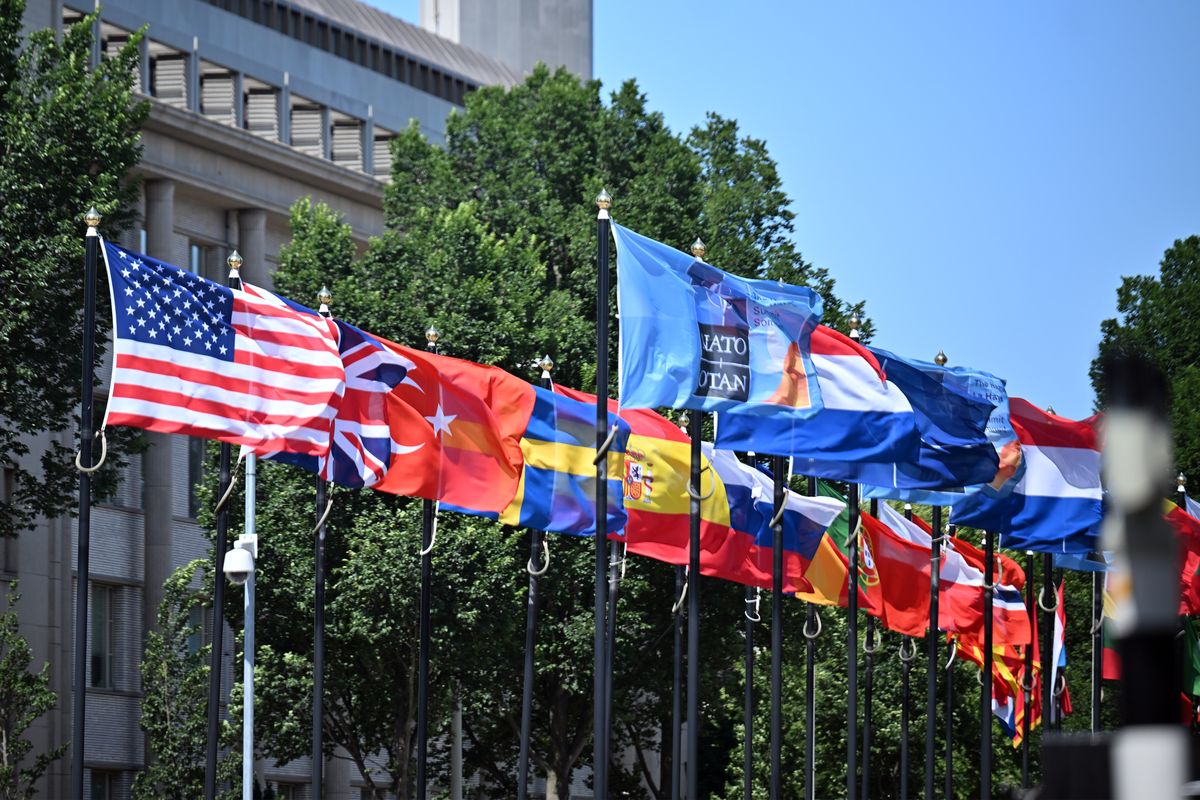Iran hasn’t been the only target of U.S. sanctions in the past week. Turkish President Recep Tayyip Erdogan ordered retaliatory sanctions again two unnamed U.S. officials after the U.S. ordered sanctions against two Turkish ministers last week. That action came in response to Turkey’s refusal to release North Carolina pastor Andrew Brunson, who has been held since October 2016 on terrorism charges.
The issue has caused relations between the two countries to slide from bad to worse, with Turkey set to also feel the heat of U.S. sanctions imposed against Iran on Monday. Turkey relies heavily on Iran for gas and oil imports.
Turkey is a key security ally for the U.S., so the growing rift could have serious implications for a future security relationship. It’s a relationship also hampered by the re-election of President Erdogan. Erdogan’s re-election could lead to major investor concern regarding the vitality and stability of the Turkish economy.
Bottom Line: With the re-election of Turkish President Recep Tayyip Erdogan, U.S.-Turkey security relations remain under threat of disintegration, particularly as Turkish military, economic, and diplomatic policies undermine U.S. strategic goals in the Middle East and around the world. Specifically, Turkey’s actions to expand defense ties with Russia, its departure from market economics, and its descent towards authoritarian governance all directly endanger positive relations with the United States.
Background: In recent years, Turkey has consistently moved away from the United States in four key ways: its politics have become less democratic, its economy less market-oriented, its military less intertwined with, and dependent on, American partnership, and its foreign policies less aligned with U.S. strategic interests.
- Politically, Erdogan’s recent re-election amid what OSCE observers described as an environment that “limited fundamental freedoms of assembly and expression” and his assumption of new executive powers to direct the country’s affairs with little judicial or legislative oversight, come into sharp relief against the democratic values generally espoused by the West. Turkey’s continued slide towards authoritarianism and its government’s repression of political dissidence highlight its departure from Western political and social norms, with direct and immediate repercussions on its desire to accede to the European Union (EU).
- Economically, the state of the Turkish economy has prompted analysts, international institutions, and investors to express concern that the country is on the verge of a market crisis. The Turkish economy has grown rapidly over the last several years thanks to extensive borrowing, but the extremely weak Turkish lira and drastic inflation have spurred Erdogan to consider limiting the independence of the Turkish central bank and keep interest rates artificially low. This potential for extensive intervention in Turkey’s market economy has already contributed to capital flight from the country, and has some concerned that the Turkish government may impose capital controls to prevent investors from further recouping their money.
- Militarily, Turkey has chafed against U.S. interests internationally and in the Middle East regionally, both with its direct military actions in Syria as well as its recent defense acquisitions from Russia. Although the United States has reduced its direct military role in Syria, Turkey’s annexation of parts of northern Syria and its vehement opposition to the emergence and empowerment of U.S.-supported Kurdish groups in the region complicate its ability to help resolve the world’s most critical conflict du jour in a manner that would support U.S. strategic interests. Meanwhile, Turkey’s acquisition of the Russian S-400 missile system sparked a harsh backlash from American policymakers and officials, as Congress tentatively blocked transfers of 100 Lockheed Martin F-35 fighters in response to the purchase.
- Diplomatically, Turkish foreign policies towards Syria, Iran, Russia, China, and other major U.S. adversaries have sharply diverged from American national strategic interests. Despite Turkey’s cooperation with the United States on counterterrorism issues, Erdogan’s wooing of Russia and Iran in particular, stoke fears that the country may become a less dependable partner in the future. Recent examples of such relationship building at the expense of U.S. strategic objectives include Turkish authorities’ reiteration that Turkey would not abide by, or help implement unilateral U.S. sanctions against Iran and Turkey’s prioritized development of natural gas pipelines with Russia’s Gazprom.
Emile Nakhleh, Former Member, CIA's Senior Intelligence Service
"As long as Russia continues to support Turkey's policy in Syria toward the Kurds, Turkey will not work to undermine Russia's expansionist foreign policy in the region, especially regarding Iraq, Syria, Israel, and the Eastern Mediterranean. In Syria, Turkey is already discussing the future of Syria, with or without Assad, with Russia and Iran. Turkey also supports Russia's on-going discussions with Iran, Saudi Arabia, Egypt, and Israel. Although Turkey is a member of NATO and maintains strong military and intelligence relations with the United States, Erdogan is actively working toward creating a non-US axis in the region. If such an axis emerges, it will include Sunni Arabs and Shia Iran. Washington seems, unwisely in my opinion, to focus exclusively on Sunni Arab regimes, with Saudi Arabia at the center of this informal alignment."
Issue: Despite this troubled and at times dysfunctional relationship, the United States and Turkey retain a number of important economic and military ties that remain vital to the United States’ ability to leverage the participation of strong regional allies to supplement its own strategic interests. However, Turkey’s recent actions that strain these ties, as well as its own domestic political woes, may make such a relationship untenable in the medium to long-term.
- While Turkey’s willingness to flex its military muscles in its near-abroad might be excused—even when such adventures inevitably result in anti-Kurdish operations—as a NATO partner, Turkey’s acquisition of Russian missile systems is extremely troubling for the future of the U.S.-Turkey defense relationship. In particular, Turkey’s recent purchase of the S-400 combined with its participation in the F-35 program represent a clear and present threat to the future efficacy of the United States’ costliest weapons program in history. Amidst a Russian push to sell its military wares in the Middle East and an active campaign to pull periphery members away from NATO, Turkey’s current ambidextrous approach to military acquisitions represents the greatest long-term strategic threat to the United States in this relationship.
Deborah Lee James, Former Secretary of the U.S. Air Force
“The operational security concerns [regarding the F35 program] are real and serious. Let’s not forget: the S-400 was built to try to detect and shoot down an aircraft like F35. Putting the two systems together could potentially allow for such a test to occur. It could also inform how to improve the S-400 in the future to counter a system like F35.”
- One of the most alarming and potentially damaging short-term threats to Turkey’s stability and its ability to forward U.S. strategic interests is President Erdogan’s intent to exercise greater control over the Turkish economy. Erdogan’s misguided ideas about managing inflation while simultaneously maintaining low interest rates are likely to cause a destructive devaluation of the Turkish lira and further drive investment away from Turkey in short order. Furthermore, Erdogan’s pursuit of grandiose construction projects that will provide only questionable economic value to Turkey could drive the country further into debt it can ill afford. Even a temporary financial collapse would have an immediate impact on Turkey’s ability to both sustain its military commitments to NATO and shore up its industrial base to stay involved in the supply chain for defense technologies such as the F-35.
Deborah Lee James, Former Secretary of the U.S. Air Force
“If Turkey were to be removed as a partner, costs likely would go up and the supply chain could be impacted. This need not happen, provided that Turkey purchases an alternative system (Like Patriot) that is NATO compatible.”
- While potentially less threatening to immediate U.S. strategic goals, Turkey’s descent towards authoritarianism should concern American policymakers who seek to maintain positive relations with countries whose records on human rights are consistent with their own. In particular, the Erdogan regime’s willingness and entrenched authority to arrest, jail, and prosecute mainstream political dissidents as “terrorists” stands out as an ominous sign that Turkish institutions may lack the underlying foundations of liberal democracy that often define America’s closest allies.
Emile Nakhleh, Former Member, CIA's Senior Intelligence Service
“Washington's strategic relations with Turkey over the years have not been driven by whether Turkey is a budding democracy or a creeping autocracy. This is more true now under the Trump administration than ever. Strongman regimes in the Middle East and across the world, sadly, are emboldened by Trump's seeming proclivity toward authoritarianism. Human rights are no longer a part of Trump's foreign relations calculus. Turkey is no exception. While Trump might disagree with some policies of some Middle Eastern countries, including Turkey and Iran, most of his key regional interlocutors are autocrats, including Egypt, Saudi Arabia, and the tribal regimes of the GCC. Erdogan's trending toward autocracy does not bother the Trump administration in the least.”
Response: While the U.S. Congress responded to Turkey’s recent acquisition of the S-400 missile system with a mandated delivery delay of F-35 fighters pending a 90-day Pentagon review of Turkey’s participation in the F-35 program and its relations with the United States, more comprehensive executive and legislative measures against Turkey for its divergence from supporting U.S. interests have yet to materialize.
James Jeffrey, Former U.S. Ambassador to Turkey and Iraq
“The problem is that reoccurring problems such as legal cases involving Americans and Embassy staffers in Turkey, Turkish banking official in the US, and extradition case of Fetullah Gulen from US—he is seen as the mastermind behind the 2016 military coup in Turkey, along with Turkish purchases of Russian weapons like S-400, and purchases of Russian gas and Iranian oil and gas, all threaten to push Turkey not so much into Russian camp but out of Western into some neutral position that objectively advantages Russians (and Iranians) more than the West.”
Look Ahead: In the short-term, the Trump administration and Republican-led Congress may not strongly oppose any domestic political or economic moves taken by the Turkish government that favor an authoritarian approach to governance. However, should the United States harden its line on Iran and demand concessions from European or Middle Eastern partners concerning sanctions, it is possible that Turkey could find itself in a contentious spot with its fourth-largest trading partner, the United States.
James Jeffrey, Former U.S. Ambassador to Turkey and Iraq
“Failure to accept Turkey as a European state on part of EU, Turkey’s weaknesses as a democratic liberal state, and Turkey’s at times differing perceptions of the threats facing it (Assad and PKK/PYD as opposed to US emphasis on ISIS) all muddle relations [with the United States]. Putin tries at times with success to profit from this muddle by buttering up and “respecting” Turkey and Erdogan. But at bottom interests between [the] two clash. Russia is an anti-status quo country and to extent it has a primary ally in region it’s not Turkey but Iran—a foe of Turkey’s.”
Emile Nakhleh, Former Member, CIA's Senior Intelligence Service
"Turkey is playing a long-term strategic game, which should worry Washington. The Trump administration is not truly interested in any grand strategy regarding the Middle East. One should ask, "Why not?" Regional observers already see that Russia and its two friendly regional partners—Iran and Turkey—are actively filling whatever vacuum is being created by America's broader regional disengagement. Of course, we still don't know what agreements or understandings, if any, Trump and Putin concluded about the future of Syria at their one-on-one meeting more than a week ago at Helsinki. Of course, Russia and Turkey continue to support the Iran nuclear deal (JCPOA) despite Trump's active efforts to destroy it."
On a longer timescale, Turkish defense relations with the United States will likely transcend temporary regional conflicts and instead depend on serving as a counterbalance to the country’s relationship with Russia, both economically and militarily. Should Turkey seek to foster long-term defense agreements with Russian suppliers, it is likely that Turkey’s relations with the United States would further deteriorate.
Analysis by The Cipher Brief's Robert Byrne-Diakun.
















